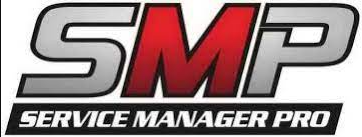service manager pro

Detail service manager pro
A detail service manager pro is the key to a successful car detailing business. They are responsible for taking care of all the little details. That can make a big difference in the quality of your work and the satisfaction of your customers. In this blog post, we will introduce you to the basics of what a detail service manager does and provide tips on how to become one. From managing your time and resources to working with clients and employees, read everything you need to know in order to be successful as a detail service manager.
The Service Manager’s Role
The service manager’s role is to oversee all aspects of the customer experience, from the initial contact with the customer through resolution of complaints and problem solving. In order to do this effectively, they need to be skilled in managing resources and keeping track of progress. They also need to have strong communication and coordination skills, as they are responsible for conveying information to various parts of the organization.
In addition to their day-to-day tasks, service managers must keep an eye on trends and changes in their industry, so that they can make appropriate adjustments to their strategy. They must also stay up-to-date on new technologies and tools that could help them improve customer service. Finally, service managers must be able to analyze data in order to identify areas where improvements can be made.
The Service Manager’s Job Duties
The service manager is responsible for ensuring the quality of customer service provided by the organization. This includes overseeing all aspects of the service operation, including implementation, delivery, and performance. Service manager oversees all aspects of customer contact, including interactions with customers over the phone, in person, or online.
They service manager also monitors and evaluates customer satisfaction surveys to ensure that the company is providing high-quality services. The service manager must keep up to date on changes in technology and industry standards so that he or she can provide customers with the best possible experience.
The service manager typically reports to a director or executive vice president in charge of customer relations and marketing.
The Service Manager’s Skills and Abilities
In order to effectively manage service requests, it is essential that the Service Manager possess a number of skills and abilities. These include being able to take responsibility for meeting customer needs, prioritizing requests, investigating problems, and troubleshooting issues. Additionally, the Service Manager should be able to work closely with other departments within an organization in order to ensure that all service requests are fulfilled in a timely manner.
Another important skill of the Service Manager is communication. Excellent communication skills allow the Service Manager to effectively communicate with customers and co-workers. This allows for cooperation and teamwork in fulfilling customer requests. Furthermore, communication can also help identify problems early on so that they can be fixed quickly.
Last but not least, the ability to manage resources is critical for any Service Manager. It is important to be able to assign tasks accurately so that resources are used efficiently and nothing falls through the cracks. In addition, it is important to be able to track progress and results so that issues can be addressed as they arise.
The Service Manager’s Training and Development Needs
Service management requires a well-trained and competent service team. Ensuring that service staff is adequately trained helps to ensure that the services they provide are of the highest quality.
For many businesses, this involves providing training not just on the job, but also in areas such as customer service, problem solving, and communication. In order to support effective and efficient training, a service manager must have robust training and development resources at their disposal.
The following are some key factors that should be considered when planning for service manager training and development:
-The purpose of the training
-Who will be attending the training
-Duration of the training
-Location of the training
-Training tools and materials available
-Staff preparedness after completing the training
The Service Manager’s Career Path
There is no one right path to a career as a service manager. However, there are many opportunities for those with the right qualifications and skills.
Some careers paths that may be relevant to someone interested in becoming a service manager include:
-Operations management
- business administration
- engineering
- project management
The Service Manager’s Career Path
The service manager is responsible for the day-to-day operations of a service organization. The career path for a service manager depends on the level of experience and education they have. A service manager with five years of experience will likely have a different career path than someone with a university degree in service management.
A service manager can start their career as a part-time employee, move up through the ranks, or become a manager. A part-time employee may work in the office during regular business hours and then take time off for training or vacation. A junior level service manager may work as a part-time employee and then move up to a full-time position after several years of experience. A senior level service manager may work as a full-time employee from the beginning.
A service manager can also become involved in marketing and customer relations. They may develop marketing plans, write sales letters, or promote services to potential customers. They also help customers solve problems and maintain relationships with them. Customer relations involve answering customer questions, resolving disputes, and maintaining relationships with customers.
A service manager can also become involved in organisational development (OD). OD involves setting goals, developing plans, and implementing changes in an organisation to improve performance. OD can help an organisation achieve competitiveness by improving its ability to produce goods or services quickly and at low cost.
Conclusion
Thank you for reading our article on Detail Service Manager Pro! In it, we discuss the importance of having a detail service manager pro in your organization, as well as outlining some of the features that make this software stand out from the competition. We hope that our coverage has helped you to understand just how valuable this software can be and why it is important to have someone on staff who is able to use it effectively. If you have any questions or concerns about Detail Service Manager Pro, please do not hesitate to contact us at support@detailedinitiative.com. We would be happy to help you further explore this powerful tool!




